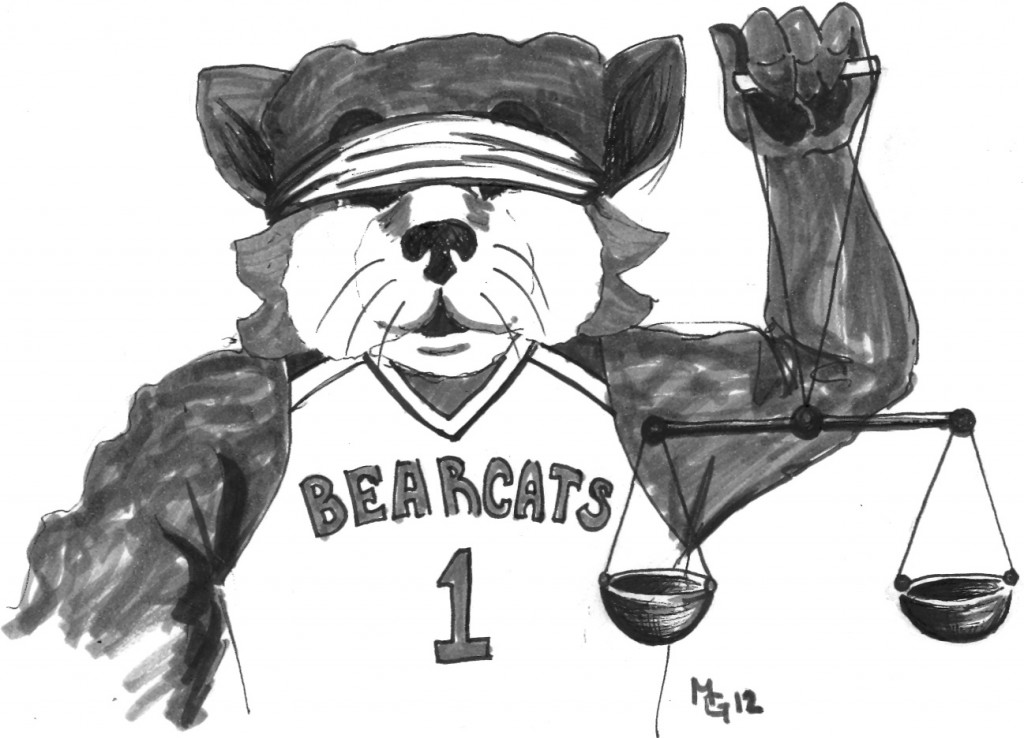Over the weekend, the men’s basketball team was hit with more bad news when Javon Ralling and Jordan Reed added themselves to the list of recent players who have found themselves in handcuffs and suspended from the team. The arrests, which shined an unflattering spotlight on the program and the University once again, seemed to point to the continuance of an ugly trend. But the Athletic Department’s handling of the news, which couldn’t be further from the practices of the past, is a commendable step in the right direction.
On Monday afternoon, only two days after the arrest of the two players occurred, the Athletic Department released a statement acknowledging both the incident and the fact that the team could not allow the players to participate in team activities for that reason.
This school’s administration is notoriously opaque. President Harvey Stenger has been a welcome change from the norm: Instead of exiling himself to the Couper Administration Building, he ventures out almost every day to symposiums, classrooms and anywhere else he feels he can meet new students. The same can’t be said for most of the other administration members.
The Athletic Department has, in the past, been guilty of the same stonewalling tactics. When a slew of players were suspended in 2009, the department refused to comment on the reasons behind the suspensions. It was only afterward that the gravity of the scandal surfaced and we discovered they had been arrested for crimes ranging from drug charges to theft.
Even then, the department said the suspensions had been due to the players’ “conduct on and off the court,” a half-hearted acknowledgment of the culture of crime that pervaded the team.
Then, again last year, a player was suspended from the team, and the Athletic Department kept mum. Saying that it was a “coach’s decision,” the department left out the fact that the player had, prior to his suspension, been arrested for criminal possession of stolen property. It was the latest in a string of legal trouble that the player had been involved in, something that was never formally addressed by the program or the department.
But now a new coach heads the team and a first-year athletic director is finally settling in. No players remain from the corruption riddled 2009 team where it all began.
It seemed, at last, that the program would finally be given the blank slate that players clear of any blame deserve. So when news of last weekend’s arrests surfaced, it was disheartening. But the transparency of the Athletic Department in its handling of the situation thus far has been perhaps the biggest surprise.
Releasing the statement and the department’s subsequent cooperation may seem like minor actions. And maybe they are. But they hint toward the idea that there finally seems to be sincere acknowledgment within the department that more than the basketball team’s roster has to change before the program’s fortunes will improve. For a department and a team that have struggled to get anything other than bad press in recent years, it is refreshing to see that the department has realized that its culture must change before anything else will — even if it means taking a slight public hit — and that it is taking definite steps in the right direction to bring about that change.
Seeing the department behave ethically is a good sign. That culture of transparency and positive conduct will hopefully translate to players both current and incoming. It would be a tragedy to field a winning team only to see half of them arrested. Again.
We hope this truly marks a turning point for the department, and not just an anomaly. Only time will tell, but so far, we see good things ahead.



